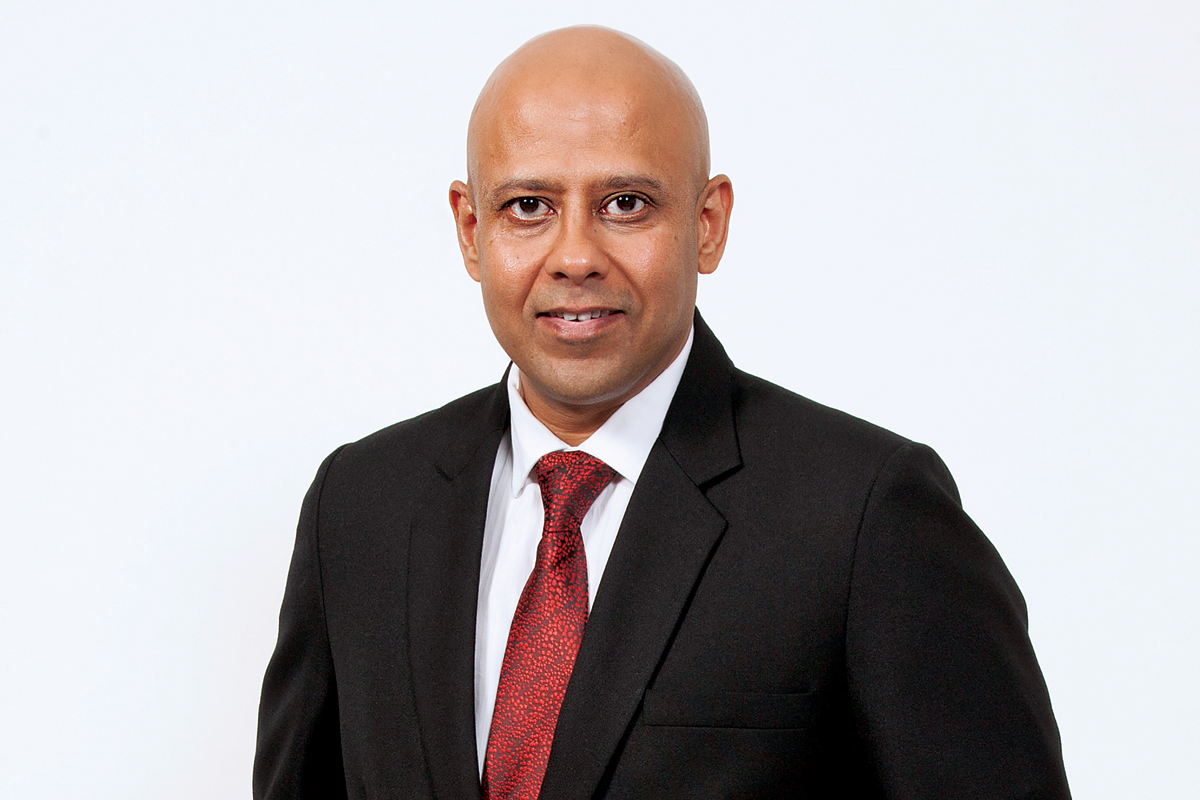Before becoming Managing Director of Dutch Lady Milk Industries Berhad (Dutch Lady Malaysia), Tarang Gupta had worked not just in many different roles, but also in locations across the world, granting him a diversity of experiences. One position that stood out for him, in particular, was when he was the FrieslandCampina Marketing Director in Nigeria between 2014–17, preceding his current role.
“We had oil prices tanking, the election, geopolitical and economic change, multiple crises, including safety and security crises, and Ebola,” reflects Tarang. “My experience in that country has taught me the one thing that’s certain is change and volatility.”
For Tarang, his experience working in Nigeria drove home the significance of the ‘VUCA’ concept. Originally used by the US Army War College, the term has come into vogue as an important part in strategic leadership, and emphasises the ‘volatility, uncertainty, complexity and ambiguity’ of many situations. To adjust to these challenges, Tarang now sees long-term planning as a crucial element of his management style.

“Operating in an extremely complex, uncertain and ambiguous environment has taught me a lot, with respect to planning for these factors,” he says. “Keeping them in mind and not getting stuck with short-term solutions are paramount. I must have a long-term vision and need to ensure our path heads towards that vision.”
Given the realities of the dairy market in Malaysia, it’s a crucial strategy for the Malaysia-based milk manufacturer and distributor. Tarang predicts both the devaluation of the Malaysian ringgit and the rising price of milk will disrupt the market and, as 70% of Dutch Lady Malaysia’s product costs are from milk, the company will need to adjust. Tarang doesn’t consider these as challenges, however. He sees them as opportunities to improve the company. “We do expect volatility from a macro-economic point of view,” he says. “We are going to adjust by making the organisation far more efficient, leaner and smarter.”
Simplicity is, therefore, the watchword for Tarang’s definition of leadership. “From the top, you miss the complexity that each employee experiences, so we do continuous surveys of employees,” says Tarang. “This is to work out how we can simplify our organisation, and to look at the challenges that people face. The more we can simplify, the more return we get from the effort our people put in. At the end of it, we’re going to get much more value back.”
“The more we can simplify, the more return we get from the effort our people put in.”
But there’s one aspect of an organisation that Tarang considers more important than its efficiency and simplicity – its people. A concept he’s picked up from investors’ writings is investing in people, not ideas. Sometimes, Tarang worries, leaders can get bogged down with KPIs, market share and other metrics to the point of forgetting about the people. He believes half of a leader’s time should be spent on their team.
As part of his focus on his people, Tarang grants them autonomy and relative independence. “I tell every employee they’re the CEO of their own territory,” he says. “‘Make the decision, be accountable for it, go and try it out.’ That’s the power of empowerment. I call it an owner’s mindset. You manage your own P&L; you do the best for your business. Each employee has freedom to complete their duties. But they’re also accountable for it. And I’ve seen some fantastic results.”
Though Tarang refers here to the people within Dutch Lady Malaysia, the company’s efforts extend to supporting the people of Malaysia. For example, it launched its ‘Drink. Move. Be Strong’ campaign in 2014, encouraging kids to drink more milk, get active and play outside (to combat malnutrition, obesity and vitamin D deficiency). The company’s mission is to ensure good health for children nationwide, and this goal, says Tarang, motivates its employees to get to work each day.
“In the end, our employees feel really proud of what we do,” he says. “So we have a very strong sense of purpose.”


